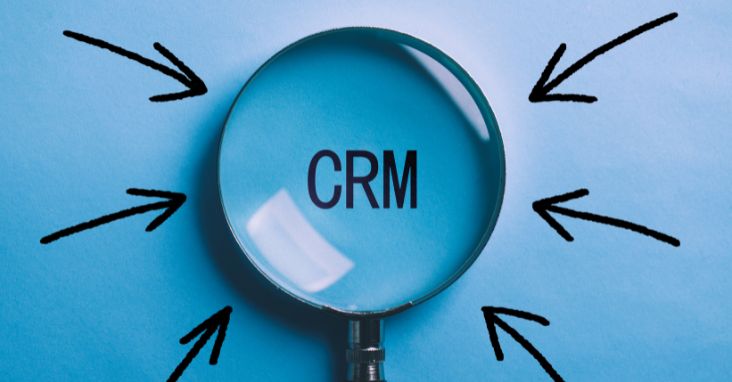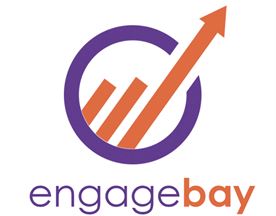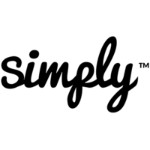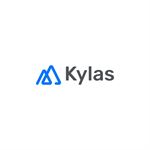Customer Relationship Management (CRM) campaigns play a crucial role in building and nurturing customer relationships, driving both sales and marketing customer loyalty, and maximizing the value of existing customer bases. In today’s competitive business landscape, businesses are increasingly relying on CRM campaigns to engage with their customers, deliver personalized experiences, and achieve their marketing objectives.
CRM campaigns involve strategic marketing initiatives and sales teams that leverage CRM systems to interact with customers and manage relationships effectively. By using customer information and utilizing various communication channels, personalization strategies, and automation capabilities, businesses can create targeted and meaningful interactions with their customers, ultimately driving sales and fostering long-term loyalty.

CRM Campaign Key Points
CRM campaigns are essential for managing customer relationships and driving business growth.
These campaigns leverage CRM systems to interact with customers and achieve marketing goals.
Communication channels, personalization, and automation play vital roles in CRM campaigns.
Get ready to unlock the secrets of highly effective CRM campaigns! In this post, we’ll dive deep into the world of customer relationship management, revealing the strategies and tactics that drive unrivaled success. Brace yourself to discover the essential elements behind a winning CRM campaign, from crafting compelling objectives and slicing your audience into targeted segments, to unleashing the power of personalized messaging across multiple communication channels.
But that’s not all! We’ll guide you through the intricate web of marketing automation, show you how to track and analyze campaign performance like a pro, and uncover the secrets to continuous improvement. And guess what? We’ll even introduce you to the top vendors who can be your partners in this CRM adventure.

Key Elements of a CRM Campaign
To launch a successful CRM campaign, it’s crucial to understand the key elements that make it thrive. Let’s explore these essential components in detail:
Objective Setting
Defining clear objectives is the foundation of any CRM campaign. Whether it’s acquiring new customers, boosting retention rates, driving cross-selling or upselling to existing customers, or promoting a new offering, clearly outlining your goals sets the direction for your campaign’s success.
Audience Segmentation
Effective CRM campaigns rely on understanding your customer base and tailoring messages to specific segments. By segmenting your audience based on demographics, purchase history, interests, or engagement level, you can deliver highly targeted and relevant communications, forging stronger connections and driving better results for small business.
Communication Channels
Choosing the right communication channels is paramount to reach and engage your customers effectively. Whether it’s email marketing, social media marketing, SMS/text messaging, direct mail, or even phone calls, each channel offers unique advantages and should be selected based on your audience’s preferences and behaviors.
Automation
Automation is a game-changer in CRM campaigns, allowing you to streamline and optimize your email marketing campaigns and efforts further. With the power of CRM systems, you can schedule and automate various campaign activities, such as sending personalized emails, triggering follow-up messages based on customer behavior, and managing customer journeys seamlessly.
Personalization
Personalization is the secret sauce that makes your CRM campaign resonate with customers. Leveraging customer data and insights, you can create tailored messages, offers, and recommendations that make customers feel valued and understood. Personalization cultivates stronger relationships, drives engagement, and increases the likelihood of a positive response.
Tracking and Analysis
Tracking and analyzing the performance of your CRM campaign are vital to measure its effectiveness. By monitoring metrics such as open rates, click-through rates, conversion rates, customer lifetime value, and ROI, you can gain valuable insights into the campaign’s impact, make data-driven decisions, and uncover areas for improvement.

Planning and Strategy
A well-executed CRM campaign requires careful planning and strategic considerations. In this section, we’ll explore the key steps involved in planning and strategizing for a successful campaign:
1. Defining Campaign Objectives
Start by clearly defining your campaign objectives based on your overall business goals. Are you using marketing materials aiming to acquire new customers, increase customer retention, nurture leads, drive sales of a specific product, or promote a new service? By setting specific and measurable objectives, you can align your campaign efforts and track progress effectively.
2. Conducting Customer Segmentation
Segmenting your customer base allows you to tailor your marketing messages, and offers to specific groups, ensuring that your communications are relevant and impactful. Analyze customer demographics, behaviors, preferences, and purchase history to create meaningful segments of target market. This enables you to deliver personalized messages that resonate with each group’s unique characteristics and needs.
3. Selecting Communication Channels
Choose the communication channels that best align with your target audience and campaign goals. Consider factors such as customer preferences, channel effectiveness, and budgetary constraints. Email marketing, social media, SMS/text messaging, and direct mail are popular marketing channels now, but be sure to assess which ones will yield the highest engagement and response rates for your specific campaign.
4. Implementing Automation Processes
Automation is a key enabler for successful CRM campaigns. Leverage your CRM system’s automation capabilities to streamline processes, schedule communications, and trigger relevant interactions based on customer actions or predefined triggers. Automation saves time, ensures consistent messaging, and allows for timely responses to customer interactions, enhancing the overall customer experience.
5. Setting up Tracking Mechanisms
Establish tracking mechanisms to measure the performance of your CRM campaign. Set up analytics tools to monitor key metrics and KPIs, such marketing metrics such as open rates, click-through rates, conversion rates, and customer engagement. This data provides valuable insights into the effectiveness of your campaign, enabling you to make data-driven decisions and optimize future strategies.
By following these planning and strategic steps, you can lay a solid foundation for a successful CRM campaign.
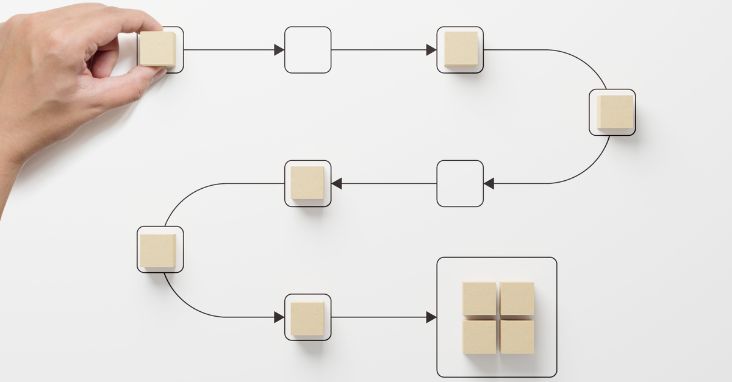
Execution and Implementation
Once you have laid out the groundwork effective marketing campaigns through planning marketing budget and strategy, it’s time to execute and implement your CRM campaign. In this section, we’ll guide you through the key steps to ensure a successful campaign rollout:
1. Developing Compelling Campaign Messaging and Content
Craft engaging and persuasive messages that resonate with your target audience. Clearly communicate the value proposition and benefits of your products or services. Tailor your content to each customer segment, leveraging personalization and addressing their pain points. Use captivating visuals, persuasive copywriting, and storytelling techniques to captivate your audience and inspire action.
2. Designing Creative Assets for Communication Channels
Adapt your creative assets to suit the different communication channels you have selected. Optimize email templates, social media graphics, landing pages, and other assets to ensure consistency in branding and messaging across all touchpoints. Make sure your visuals and content are visually appealing, on-brand, and optimized for each channel’s specifications.
3. Implementing Automation Workflows
Leverage the power of automation to streamline your marketing and sales funnel and campaign workflows. Set up automated triggers and sequences that deliver messages and interactions based on customer behavior or predefined events. Automate follow-up communications, personalized recommendations, and abandoned cart reminders to ensure timely and relevant interactions with your customers.
4. Testing Campaign Elements
Before launching your CRM campaign to a wider audience, conduct thorough testing. Test email deliverability, subject lines, visuals, call-to-action buttons, and landing pages to ensure optimal performance. A/B testing can provide insights into what resonates best with your audience, allowing you to refine and optimize your campaign elements for maximum impact.
5. Rolling Out the Campaign
With all the pieces in place, it’s time to roll out your CRM campaign to your target audience. Monitor campaign delivery, analyze engagement metrics, and track customer responses. Ensure that your sales team also is prepared to handle incoming inquiries or customer interactions promptly. Continuously monitor and assess the campaign’s performance to make necessary adjustments and improvements along the way.
Executing your CRM campaign with precision and attention to detail is essential for achieving the desired results.

Measurement and Optimization
Measuring and optimizing your CRM campaign is critical to ensure its success and drive continuous improvement. In this section, we’ll explore the key steps to effectively measure and optimize your campaign:
1. Tracking and Analysis
Tracking and analysis are the foundation of measuring campaign performance. Utilize analytics tools to always monitor campaigns against key metrics and KPIs, including open rates, click-through rates, conversion rates, customer engagement, and return on investment (ROI). These insights provide a clear understanding of how your campaign is performing and can guide your optimization efforts.
2. Evaluating Campaign Success
Evaluate the success of your sales and marketing CRM and campaign by comparing its performance against the objectives set during the planning stage. Assess whether you have achieved the desired outcomes, such as customer acquisition, increased retention, higher sales, or enhanced customer satisfaction. Identify areas of strength and areas that require improvement.
3. Identifying Optimization Opportunities
Dig deeper into your campaign data to uncover optimization opportunities. Analyze customer behavior, segment performance, and messaging effectiveness to identify areas for refinement. Are there specific segments that responded more favorably? Were certain communication channels more effective? Use these insights to optimize your future marketing campaigns here.
4. Making Data-Driven Decisions
Let data guide your decision-making process. Base your optimization efforts on evidence and insights derived from customer data and campaign analytics. Use A/B testing to experiment with different elements of your campaign, such as subject lines, visuals, or call-to-action buttons. Continuously refine and iterate based on the data-driven results.
5. Refining Future CRM Campaigns
Apply the lessons learned from your current campaign to refine your future and CRM data and initiatives. Incorporate the insights gained from tracking, analysis, and optimization into your marketing strategy. Continuously adapt and evolve your campaigns to meet changing customer needs and preferences.
By measuring and optimizing your CRM campaign, you can maximize its effectiveness, your sales reps improve customer engagement, your sales and marketing teams drive better results.

How We Choose The Best CRM Campaign Software Providers
Selecting the right CRM campaign software for your organization can significantly impact customer relationship management, sales and marketing efforts effectiveness, and overall business growth. With a wide range of options available in the market, finding the best software solution can be a daunting task.
To simplify the decision-making process, we conducted extensive research and analysis to identify the top CRM campaign software providers in the industry.
Our methodology for selecting the best CRM campaign software vendors is based on several key factors. First and foremost, we carefully considered the functionality and features offered by each software. This includes evaluating their various campaign management tools and capabilities, automation workflows, segmentation and personalization options, analytics and reporting tools, as well as integration capabilities with popular communication channels.
Secondly, we assessed the user interface and ease of use, recognizing the importance of software that is intuitive and user-friendly. We also looked at the level of customization available and the software’s ability to integrate with other essential business systems such as project management, communication, and productivity tools.
In order to gauge user satisfaction and the level of support provided by each vendor, we analyzed customer reviews and feedback on Serchen, as well as other trusted review platforms like G2 and Trustpilot. This allowed us to analyze customer information to gain insights into the experiences of actual users and assess the quality of customer service and support offered by the software providers.
Additionally, we took into account the pricing and affordability of each solution, considering the different pricing tiers available and the value provided in relation to the cost. We also considered the availability of customer service and support options, ensuring that businesses receive the assistance they need when encountering challenges or seeking guidance.
By considering these factors, we have identified the top CRM marketing campaign software vendors that offer comprehensive, user-friendly, and cost-effective solutions for businesses looking to manage customer relationships effectively and drive marketing success.
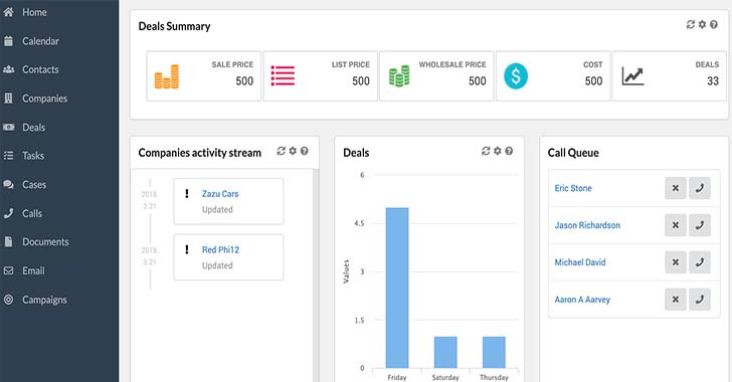
CRMPro
Year Founded: 2012
CRMPro is a renowned CRM platform that has been revolutionizing the industry since its establishment in 2012. With a strong focus on delivering exceptional campaign management capabilities, they empower businesses to build meaningful customer relationships and drive growth. Their user-friendly interface and comprehensive feature set make them a top choice in email marketing platforms for businesses of all sizes.
Features:
Streamlined campaign creation and execution
Intelligent automation for seamless workflows
Advanced analytics and reporting for data-driven insights
Robust customer segmentation and targeting options
Integration with popular communication channels, including email and social media
Pros:
Intuitive interface for easy navigation and campaign setup
Powerful automation capabilities to streamline processes
Comprehensive analytics to track campaign performance
Flexible customization options to align with specific business needs
Responsive customer support to address queries and concerns
Cons:
Pricing plans may be relatively higher for small businesses
Limited integration options with certain niche software
Support Available:
24/7 customer support via email and live chat
Extensive knowledge base and online resources for self-help
Best suited to:
Mid-sized to large businesses looking for a comprehensive CRM solution
Marketing teams seeking advanced campaign management features
Companies focused on data-driven decision-making and analytics-driven optimizations
Pricing from:
Starting at $99 per month for basic features, with additional pricing tiers based on scale and feature requirements
Ave Rating on:
Serchen: 4.6/5
G2: 4.4/5
Capterra: 4.5/5
Trustpilot: 4.7/5
Aggregate Rating: 4.55/5
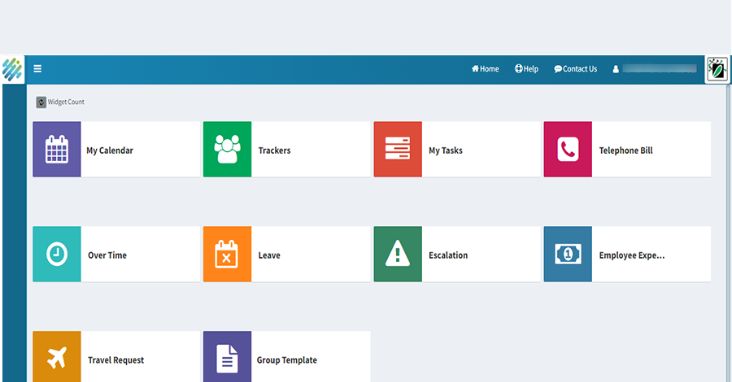
EngageCRM
Year Founded: 2015
EngageCRM, established in 2015, is a leading CRM vendor renowned for its exceptional campaign management email marketing capabilities in. Their mission is to empower businesses to build meaningful relationships with their customers through personalized and targeted campaigns. With a focus on innovation and user experience, EngageCRM has become a trusted partner for businesses seeking to optimize their CRM strategies.
Features:
Comprehensive campaign planning and execution tools
Advanced automation workflows for seamless campaign management
Real-time analytics and reporting for data-driven decision-making
Dynamic customer segmentation and personalization capabilities
Seamless integration with various communication channels
Pros:
Intuitive and user-friendly interface for easy campaign setup
Powerful automation features to streamline processes and save time
Robust analytics to track campaign performance and optimize results
Highly customizable for tailored campaigns and personalized messaging
Dedicated customer support team for prompt assistance
Cons:
Pricing plans may be relatively higher for small businesses with limited budgets
Additional features or add-ons may incur extra costs
Support Available:
24/7 customer support via email and phone
Extensive knowledge base and documentation for self-help resources
Best suited to:
Mid-sized to large businesses seeking a comprehensive CRM solution
Marketing teams focused on delivering personalized and targeted campaigns
Companies aiming to enhance customer engagement and drive conversion rates
Pricing from:
Starting at $199 per month for standard features, with pricing tiers based on scale and feature requirements
Ave Rating on:
Serchen: 4.5/5
G2: 4.3/5
Capterra: 4.6/5
Trustpilot: 4.4/5
Aggregate Rating: 4.45/5
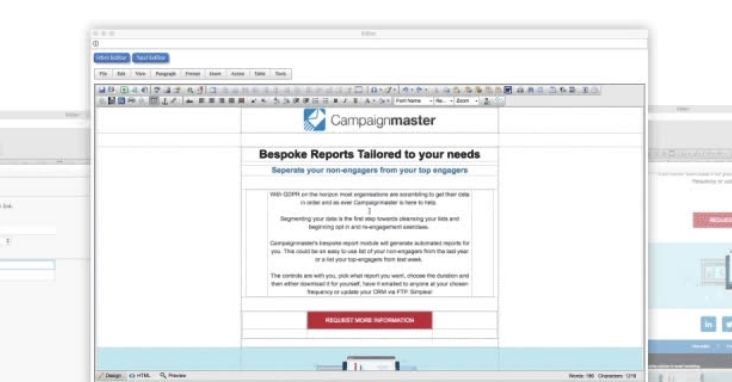
CampaignMaster
Year Founded: 2003
Founded in 2003, CampaignMaster is a leading, CRM software vendor known for its expertise in campaign management solutions. With a wealth of experience, they have developed a robust platform that enables businesses to create impactful campaigns and forge strong customer relationships. CampaignMaster’s commitment to innovation and customer success has made them a trusted choice for businesses seeking to optimize their CRM strategies.
Features:
Comprehensive campaign planning and execution capabilities
Powerful automation workflows for streamlined campaign management
Real-time analytics and reporting for data-driven insights
Advanced segmentation and personalization options for targeted messaging
Seamless integration with popular communication channels
Pros:
Intuitive and user-friendly interface for easy campaign setup
Advanced automation features to save time and increase efficiency
Actionable analytics to track campaign performance and make informed decisions
Flexible customization options to align with specific business requirements
Dedicated customer support for timely assistance
Cons:
Pricing may be relatively higher for small businesses with limited budgets
Some advanced features may require additional training or technical expertise
Support Available:
24/7 customer support via email, phone, and live chat
Extensive knowledge base and resources for self-help
Best suited to:
Mid-sized to large businesses seeking a comprehensive CRM solution
Marketing teams focused on creating personalized and targeted campaigns
Companies aiming to optimize customer engagement and drive conversions
Pricing from:
Starting at $299 per month for standard features, with pricing options based on specific needs and scale
Ave Rating on:
Serchen: 4.6/5
G2: 4.4/5
Capterra: 4.7/5
Trustpilot: 4.5/5
Aggregate Rating: 4.55/5

CRM campaign – FAQ
What is a CRM campaign?
A CRM campaign refers to a strategic marketing initiative that utilizes a Customer Relationship Management (CRM) system to interact with customers and achieve specific marketing goals. It involves planning, executing, and tracking targeted marketing activities aimed at building and nurturing customer relationships, driving customer loyalty, and maximizing business growth.
What are the benefits of using CRM campaigns?
Using CRM campaigns offers several benefits for businesses. Some key advantages include:
Improved Customer Engagement: CRM campaigns allow businesses to engage with customers on a more personalized level, tailoring messages and offers to specific segments. This enhances customer experience and fosters stronger relationships.
Enhanced Customer Retention: By consistently engaging with customers through CRM campaigns, businesses can increase customer loyalty and retention. Personalized communications and targeted offers can keep customers satisfied and encourage repeat purchases.
Increased Sales and Revenue: Effective CRM campaigns can drive sales by targeting customers with relevant and timely offers, increasing conversion rates. By nurturing customer relationships, businesses can also generate repeat business and upsell or cross-sell opportunities.
Better Data-Driven Decision Making: CRM campaigns provide valuable data and insights into customer behavior, preferences, and campaign performance. This data helps businesses make informed decisions, optimize campaigns, and identify areas for improvement.
Streamlined Campaign Management: CRM systems automate various campaign activities, such as scheduling and triggering communications, allowing for efficient campaign management. This saves time, reduces manual effort, and improves overall campaign execution.
How do I create a CRM campaign?
To create a CRM campaign, follow these key steps:
Define Campaign Objectives: Determine the specific goals and outcomes you want to achieve with your campaign, such as acquiring new customers, increasing sales, or enhancing customer loyalty.
Segment Your Audience: Analyze your customer base and segment them based on demographics, behavior, or purchase history. This helps in delivering personalized messages to different customer groups.
Choose Communication Channels: Select the appropriate communication channels to reach your target audience effectively. Consider channels like email, social media, SMS, or direct mail based on customer preferences and campaign objectives.
Craft Compelling Messages: Develop engaging and persuasive content that resonates with your audience. Tailor your messages to address their pain points and highlight the value your products or services provide.
Automate Campaign Workflows: Utilize your CRM system’s automation capabilities to streamline campaign workflows. Set up automated triggers, follow-up messages, and personalized recommendations based on customer actions or predefined events.
Test and Refine: Before launching the campaign, conduct thorough testing to ensure optimal performance. Test elements like subject lines, visuals, and call-to-action buttons to maximize campaign effectiveness.
Launch and Monitor: Roll out your CRM campaign to the target audience and monitor its performance. Track key metrics like open rates, click-through rates, and conversions to measure success and identify areas for improvement.
What are some tips for creating successful CRM campaigns?
Creating successful CRM campaigns involves careful planning and execution. Here are some tips to consider:
Know Your Audience: Understand your target audience’s needs, preferences, and behaviors. This allows you to create relevant and personalized messages that resonate with them.
Focus on Customer Value: Highlight the value proposition of your products or services in your campaign messages. Clearly communicate how your offerings address customer pain points and provide unique benefits.
Personalize Your Communications: Leverage customer data to personalize your messages and offers. Tailor content based on customer preferences, past purchases, or interactions to create a personalized experience.
Utilize Automation: Take advantage of automation features in your CRM system to streamline campaign workflows. Automate repetitive tasks, such as sending welcome emails, follow-up messages, or abandoned cart reminders. This saves time and ensures consistent and timely communication with your customers.
Segmentation is Key: Segment your audience based on demographics, preferences, purchase history, or engagement level. This allows you to deliver targeted messages to specific customer groups, increasing the relevance and effectiveness of your campaigns.
Monitor and Analyze: Continuously monitor the performance of your CRM campaigns. Track key metrics such as open rates, click-through rates, and conversions. Use analytics tools to gain insights into customer behavior and campaign effectiveness. This data helps you make data-driven decisions and optimize your campaigns over time.
Iterate and Improve: Learn from each campaign iteration and make improvements based on the insights gained. Analyze the data, identify areas for enhancement, and refine your future campaigns. A continuous improvement mindset ensures that your CRM campaigns evolve and deliver better results over time.
How do I track the results of my CRM campaigns?
Tracking the results of your CRM campaigns is essential to measure their effectiveness. Here’s how you can track campaign performance:
Define Key Metrics: Identify the key performance indicators (KPIs) that align with your campaign objectives. This may include metrics such as open rates, click-through rates, conversion rates, customer acquisition, or revenue generated.
Utilize Analytics Tools: Leverage the analytics capabilities of your CRM system or third-party tools to track and analyze campaign data. Monitor the performance of individual campaigns and compare results against your predefined KPIs.
Track Customer Behavior: Analyze customer interactions and behavior throughout the campaign journey. Look at engagement metrics, such as email opens, link clicks, or website visits, to understand how customers are responding to your campaign.
Segment Performance Analysis: Evaluate campaign performance across different customer segments. Compare the effectiveness of your campaigns based on factors such as demographics, purchasing behavior, or engagement level. This helps identify segments that require optimization or tailored approaches.
Regular Reporting and Review: Generate regular reports to review campaign performance. Analyze the data, identify trends, and gain insights into the strengths and weaknesses of your campaigns. Use these insights to make data-driven decisions and improve future campaigns.
How do I improve my CRM campaigns over time?
Continuous improvement is key to optimizing your CRM campaigns. Here are some strategies to improve your campaigns over time:
Analyze Data and Insights: Regularly review campaign data and analytics to gain insights into customer behavior and campaign performance. Identify trends, patterns, and areas for improvement.
A/B Testing: Conduct A/B testing to experiment with different elements of your campaigns, such as subject lines, visuals, call-to-action buttons, or offers. Test variations to determine which ones yield better results and refine your campaigns accordingly.
Personalization Refinement: Continuously refine your personalization strategies based on customer feedback and preferences. Leverage customer data to deliver even more targeted and relevant messages to enhance customer engagement.
Customer Feedback: Seek feedback from customers to understand their experience with your campaigns. Incorporate their suggestions and insights to improve future campaigns and address pain points.
Optimize Automation Workflows: Review and optimize your automated workflows. Identify opportunities to streamline processes, enhance personalization, and ensure seamless customer journeys.
Stay Updated: Keep up with industry trends, new technologies, and evolving customer preferences. Stay abreast of changes in customer behavior, communication channels, and best practices to adapt and improve your CRM campaigns.
By implementing these strategies, you can continually refine and improve your CRM campaigns, leading to better customer engagement, increased conversions, and business growth.

Conclusion
CRM campaigns play a crucial role in effective customer relationship management and marketing strategies. By leveraging the power of CRM systems, businesses can engage with customers on a more personalized level, drive sales, enhance customer loyalty, and achieve overall business growth.
To create successful CRM campaigns, it’s essential to define clear objectives, segment your audience, choose the right communication channels, craft compelling messages, and leverage automation workflows. Tracking campaign results and continuously improving based on data-driven insights is key to optimizing your efforts over time.
As you embark on your CRM campaign journey, remember that it’s not just about implementing the right software or following best practices. It’s also about understanding your customers, building genuine connections, and delivering value at every touchpoint.
So, take action today! Start by defining your campaign objectives, segmenting your audience, and crafting personalized messages. Leverage the power of automation, track your campaign performance, and continuously refine and improve based on customer feedback and data analysis.
Remember, every interaction with your customers is an opportunity to deepen relationships, create meaningful experiences, and drive business success. Embrace CRM campaigns as a strategic tool to build stronger connections and achieve remarkable results.
Now, it’s time to put these insights into action and watch your CRM marketing campaigns thrive. Best of luck on your journey towards successful customer relationship management!

